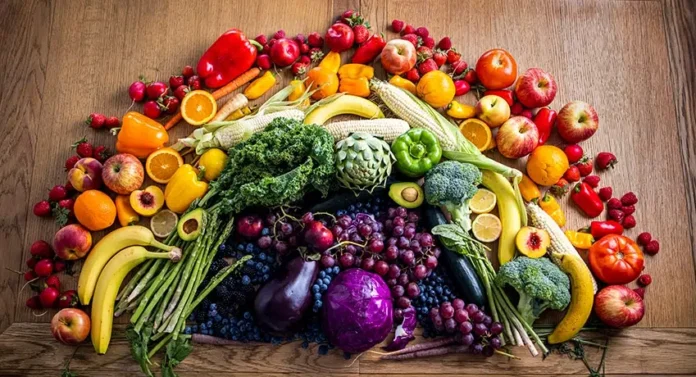For decades, fruits and vegetables have been the cornerstone of a healthy diet, but are they as nutritious as they once were? Research suggests a steady decline in nutrient density, raising concerns about how modern farming and environmental changes impact our food.
Nutritional Decline: What the Research Says
Scientific studies show a measurable drop in the nutrient content of fruits, vegetables, and grains over the past 70 years. A landmark study in the Journal of the American College of Nutrition found significant declines in six key nutrients—protein, calcium, phosphorus, iron, riboflavin, and ascorbic acid—since the 1950s. The most alarming drop was a 38% reduction in riboflavin.
Additionally, the mineral density in wheat has declined over the past 160 years, emphasizing a long-term trend of nutrient depletion.
Why Are Fruits and Vegetables Less Nutritious?
Several factors contribute to nutrient loss in produce, including:
1. Soil Degradation and Nutrient Depletion
- Intensive farming, monocropping, and excessive use of synthetic fertilizers have depleted essential minerals in the soil.
- As nutrients are used up, plants grown in the same soil over time absorb fewer vitamins and minerals.
2. High-Yield Crops Prioritizing Growth Over Nutrition
- Modern crops are bred for higher yields, pest resistance, and faster growth, often at the expense of nutrient density.
- Research indicates that faster-growing plants accumulate fewer nutrients per unit of weight.
3. Rising Carbon Dioxide (CO2) Levels
- Increased CO2 concentrations are believed to boost carbohydrate content (sugars and starches) in plants while simultaneously reducing levels of essential minerals like zinc and iron.
4. Harvesting, Storage, and Transportation Effects
- Long-distance shipping and prolonged storage degrade nutrients, particularly heat-sensitive vitamins like Vitamin C.
- Industrial food processing can strip crops of valuable antioxidants and minerals.
Which Foods Are Most Affected?
- Fast-growing vegetables like spinach, lettuce, and corn show the most nutrient decline.
- Root vegetables and fruits (which grow more slowly) tend to retain more nutrients.
- Highly processed grains and legumes also lose essential vitamins and minerals over time.
How to Maximize Your Nutrient Intake from Fruits and Vegetables
Despite concerns over nutrient dilution, fruits and vegetables remain essential for health. Experts recommend these strategies to get the most nutrition from your produce:
1. Choose Organic and Heirloom Varieties
- Organic farming supports soil health, leading to more nutrient-dense crops.
- Heirloom varieties often have higher vitamin and mineral content than commercial high-yield varieties.
2. Prioritize Local and Seasonal Produce
- Nutrients degrade over time, so buying fresh, locally harvested produce reduces nutrient loss from prolonged storage.
3. Support Regenerative Agriculture
- Crop rotation, composting, and reduced tillage improve soil health, increasing plant nutrition.
4. Diversify Your Diet
- Eating a wide range of fruits and vegetables ensures a broad spectrum of nutrients in your diet.
5. Optimize Cooking and Storage Methods
- Steaming instead of boiling helps retain water-soluble vitamins like Vitamin C and B-complex vitamins.
- Consuming raw produce when appropriate preserves nutrients that may degrade with heat.
Final Thoughts: Fruits and Vegetables Still Matter
While the nutrient density of produce has declined, experts emphasize that fruits and vegetables remain vital for overall health. They continue to provide fiber, hydration, antioxidants, and essential vitamins such as Vitamin C, Vitamin A, and potassium.
By making mindful food choices—such as buying local, choosing organic, and diversifying produce intake—consumers can still maximize the health benefits of fruits and vegetables despite ongoing agricultural challenges.




